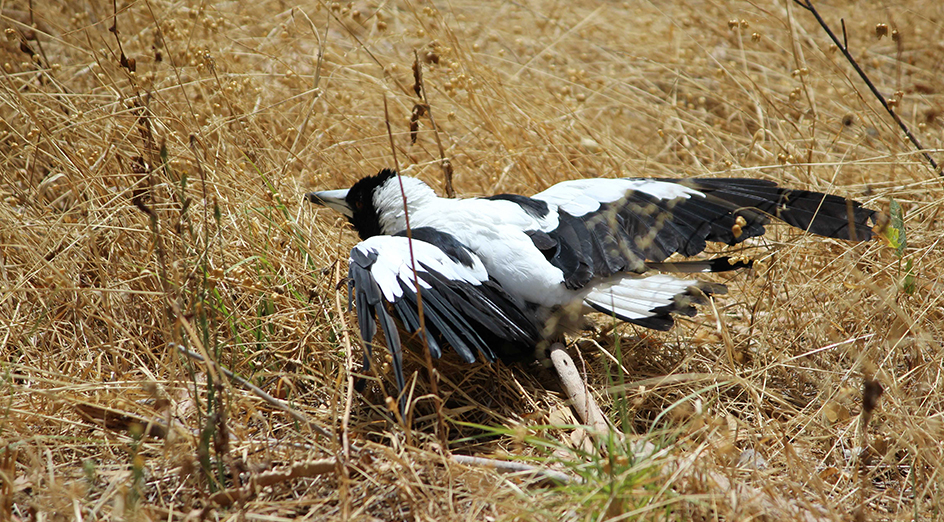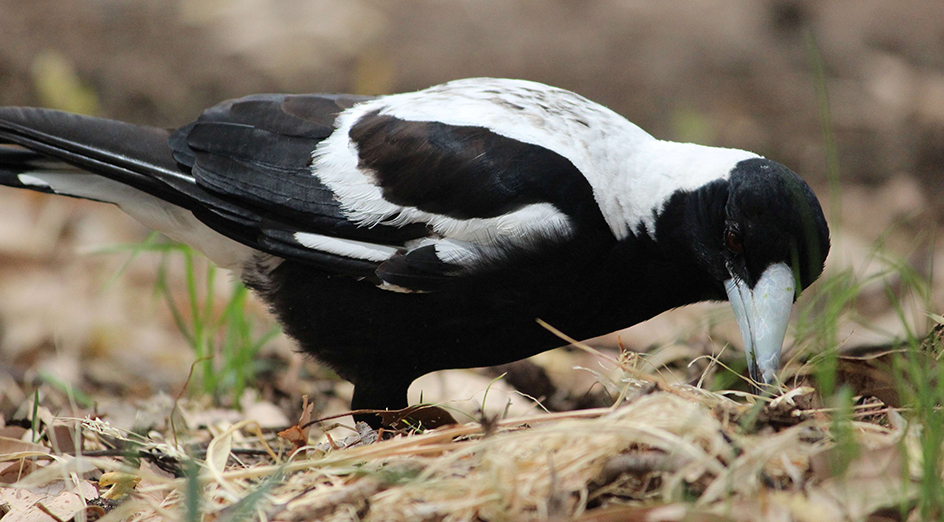The combined impact of climate change and human-generated noise are proving double trouble for wild urban-dwelling bird species, changing their behaviour in ways that could threaten their survival.
That’s the finding of a new study from The University of Western Australia published in the journal Animal Behaviour, which looked at how hotter temperatures and loud man-made noises, such as those from aeroplanes, impacted West Australian magpies, both individually and when they co-occurred.
Lead author, PhD candidate Grace Blackburn from UWA’s School of Biological Sciences, said birds were exposed to playback recordings of background noise and aeroplane noise under naturally occurring heat stress and non-heat stress conditions.

“These two significant human-induced stressors affect wildlife populations worldwide but despite their prevalence, they’re often investigated in isolation, overlooking their combined effects on species, especially in urban areas,” Ms Blackburn said
“Our results revealed that both heat stress and human-induced noise independently reduced the time magpies spent looking for food and increased the time they spent watching out for danger, which is consistent with previous findings.
“However, notably, under the combined effect of plane noise and heat stress, magpies exhibited significantly more vigilance and spent less time foraging for food compared when either stressor occurred alone.
“This poses a threat to magpie populations, potentially leading to a decline in their physical health and affecting how well they take care of their babies and their reproductive success.”
Ms Blackburn said while the size of magpie groups was already known to affect behaviour, with larger groups spending less time watching out for danger and more time searching for food (an effect known as ‘the many-eyes effect’), this pattern changed under heat stress and loud noise conditions.
“We found that under these circumstances, larger groups become more vigilant and spend less time foraging which suggests that multiple human-made stressors can also alter the benefits of group living for magpies, which is concerning,” she said.

“We know that human-induced stressors such as rising temperatures and anthropogenic noise rarely occur in isolation, so our study really aims to highlight the importance of considering the simultaneous impacts of human-induced rapid environmental change on wildlife populations globally.”
All photographs credit to Kito Ridley.
